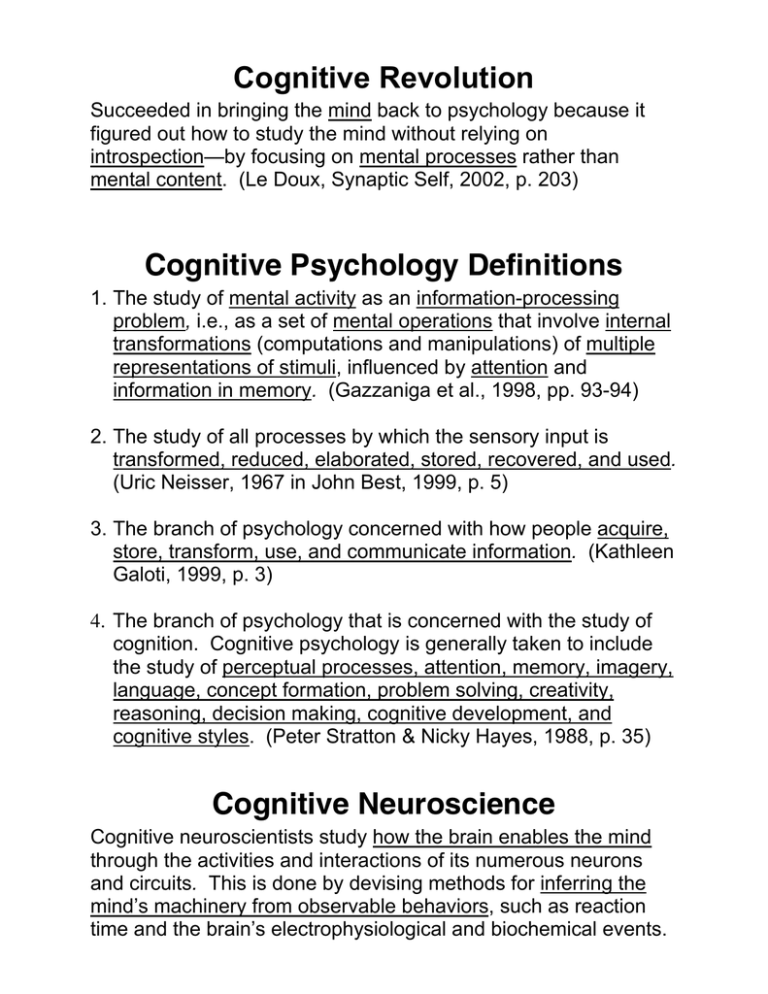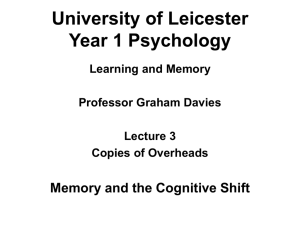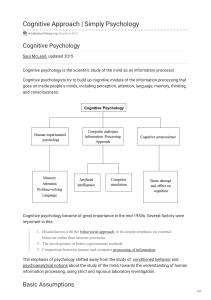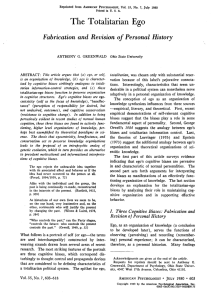Cognitive Psychology Definitions
advertisement

Cognitive Revolution Succeeded in bringing the mind back to psychology because it figured out how to study the mind without relying on introspection—by focusing on mental processes rather than mental content. (Le Doux, Synaptic Self, 2002, p. 203) Cognitive Psychology Definitions 1. The study of mental activity as an information-processing problem, i.e., as a set of mental operations that involve internal transformations (computations and manipulations) of multiple representations of stimuli, influenced by attention and information in memory. (Gazzaniga et al., 1998, pp. 93-94) 2. The study of all processes by which the sensory input is transformed, reduced, elaborated, stored, recovered, and used. (Uric Neisser, 1967 in John Best, 1999, p. 5) 3. The branch of psychology concerned with how people acquire, store, transform, use, and communicate information. (Kathleen Galoti, 1999, p. 3) 4. The branch of psychology that is concerned with the study of cognition. Cognitive psychology is generally taken to include the study of perceptual processes, attention, memory, imagery, language, concept formation, problem solving, creativity, reasoning, decision making, cognitive development, and cognitive styles. (Peter Stratton & Nicky Hayes, 1988, p. 35) Cognitive Neuroscience Cognitive neuroscientists study how the brain enables the mind through the activities and interactions of its numerous neurons and circuits. This is done by devising methods for inferring the mind’s machinery from observable behaviors, such as reaction time and the brain’s electrophysiological and biochemical events.





